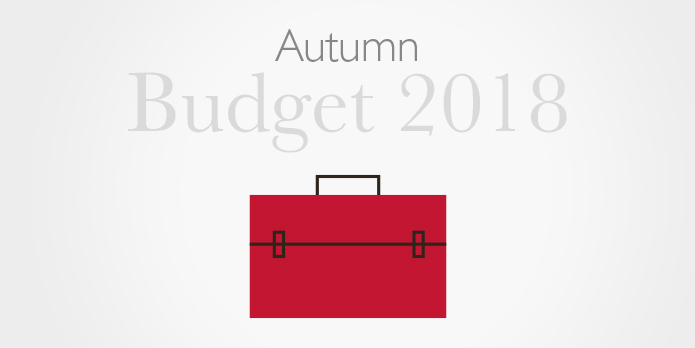
Autumn Budget 2018 – the Freshwater analysis
This budget was always going to be unique in its own right, set against the backdrop of Brexit in just five months’ time and with the prime minister’s pledge of ending austerity echoing in the background.
Yet, significantly improved fiscal figures, including a lower deficit and increased revenue – largely the result of HMRC getting better at collecting taxes rather than a fundamentally improved economy – gave the chancellor, Philip Hammond, a strong hand at the dispatch box. It enabled him to unveil additional spending of more than £30bn, although much of it had already been revealed through Treasury announcements ahead of his speech.
The injection of cash has worried more fiscally conservative commentators. However, it is an indication of the need for the government to have followed through on the promise to herald the end of austerity. Add to that the possibility of a snap general election, and it required some money to be thrown into policies more likely to resonate at the ballot box.
Setting the economic foundations for his budget, Hammond revealed a slight increase in growth for 2019/20, with GDP revised up from 1.3% to 1.6%. Nonetheless, growth is still expected to be sluggish in the years following, at 1.4% in 2020; then 1.4 % in 2021; then 1.5% in 2022; and 1.6% in 2023.
Defying many predictions, the chancellor also announced an increase in the personal tax allowance in April 2019 to £12,500, and to £50,000 at the higher rate, meeting the government’s manifesto commitment a year early.
Turning his fire on the opposition and parking Conservative tanks firmly on Labour’s lawn, Hammond also made a commitment to abolish private finance initiative (PFI) contracts – a headline policy espoused by shadow chancellor, John McDonnell. However, the real world impact of this will be negligible: there are no new PFI contracts in the pipeline.
Hammond also lauded the additional £8.4bn, five-year deal for the “precious” NHS, referring to it as the “number one priority of the British people”. Forming part of the 10 Year NHS Plan, he also unveiled an extra £2bn for mental health services in England which will help establish a comprehensive mental health support in every major A&E, a children and young people’s crisis team in every part of the country and a 24-hour mental health crisis hotline. In recognition of the growing concern at the cost of social care, the chancellor also announced a £650m grant for English local authorities, together with £84m over the next five years for children in care and an additional £45m for the disabled facilities grant.
Yet focusing on the NHS meant there was little of significance for other public services, including education.
Promising an additional £1bn of funding for the Ministry of Defence, Hammond referenced the government’s commitment to the safety of its citizens, pledging further cash for cyber capabilities and counter terrorism police which would “allow us to sleep safe in our beds.”
Meanwhile, as the UK continues its Brexit negotiations with the EU, a further £500m was set aside for departmental preparations in the event of a no-deal, adding to the existing £2.2bn already announced and the £1.5bn announced in the spring statement.
However, in contrast to previous budgets, it was relatively underwhelming on infrastructure. On housebuilding, the chancellor announced a further £500m for the Housing Infrastructure Fund, helping to build a further 650,000 homes as well as announcing a funding package to empower 500 neighbourhoods across England to help local people buy homes at a discount. There was also £25.5bn announced for major roads upgrades and £420m for local councils to tackle the scourge of pot holes. Beyond this, there were several smaller but less significant announcements and, while money was announced for Northern Powerhouse Rail, East West Rail, the Docklands Light Railway and the Tyne and Wear Metro, there was a noticeable absence of anything significant for major enhancements for the rail network.
Referring regularly to the “hard work” of the British people having paid off, the chancellor interspersed many of his announcements with barbed comments about the previous Labour government’s economic strategy – a clear indication of the political heat around the budget. Theresa May will be pleased about the tone of the Budget and how it has been received by the right-leaning news media. However, the true test of the extent to which the government is committed, and able, to reorientate its strategy away from austerity, will be in next year’s Comprehensive Spending Review and the nature of the final Brexit deal – if one is achieved at all.
Click here for our comprehensive review, where we set out the details relating to transport, housing, infrastructure, skills and devolution.
